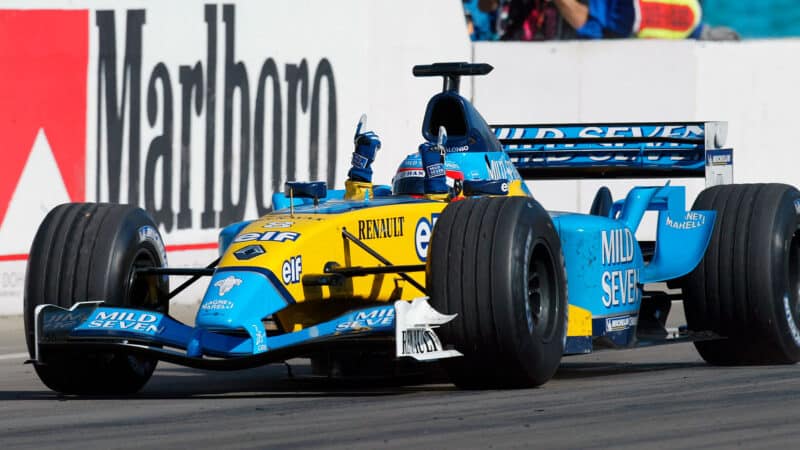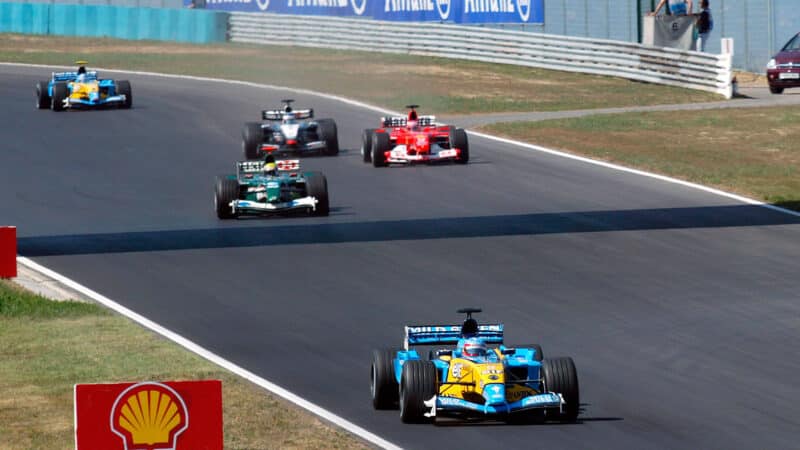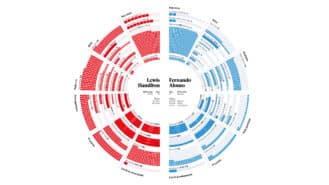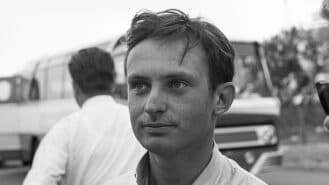Renault had earmarked the Hungaroring as an opportunity and Alonso wasn’t about to waste it. The great drivers tend not to, and here our suspicions were confirmed: he was among them. From pole, he scorched down to Turn 1 as those on the inside line of the grid struggled for traction on the dirty track. Williams duo Juan Pablo Montoya and Ralf Schumacher – one of whom really could and perhaps should have been world champion that year – dropped into the pack, the latter exacerbating his poor start with a clumsy spin at the Turn 2 left-hander.
Meanwhile, Mark Webber from a genuine third on the grid in his surprisingly decent Jaguar, did Alonso a significant favour. The green car streaked into second place and around a circuit infamous for its lack of passing opportunity, proved a handy cork in the bottle. By lap four Alonso’s lead was 10 seconds.
The Renault briefly gave up its lead at the first of Alonso’s three stops, to Kimi Räikkönen’s McLaren, but the Finn pitted just two laps later, scotching the theory the Spaniard had only taken pole because of a super-light fuel load. Alonso pressed serenely on to beat Räikkönen by 16.7sec for a landmark victory. Not only was he now the youngest ever F1 winner, he was also the first from Spain, a country that had never boasted a front-line motor sport hero (at least on four wheels). Until then, Fon de Portago’s second place at Silverstone in 1956 had been the closest Spain had come to an F1 winner. Now it had one, and the country was about to go mad for grand prix racing in a way it never had before.
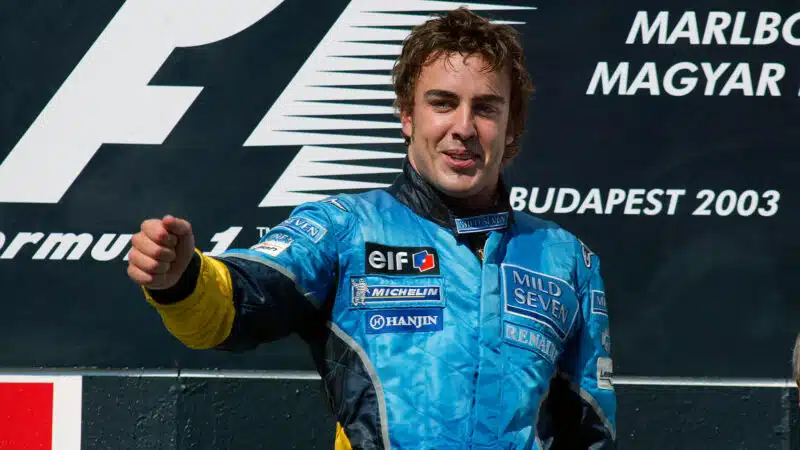
Alonso transitioned young gun to leading light at Hungaroring ’03
Grand Prix Photo
The victory was also a significant landmark for the team. Renault had bought Benetton in March 2000 following its short break from the sport since the end of 1997. It had dominated the 1990s, but only as an engine supplier. Now it had renewed its 1970s/80s ambitions to win solely on its own terms – and in Hungary here was proof it had been the right call. This was the first all-in Renault F1 win since the days of Prost 20 years earlier, and the first for Team Enstone for six years (which might as well have been 20 given how long ago that felt). On the pitwall, a nervous Flavio Briatore was vindicated.
Hungary has a habit of throwing up key results for ‘Team Enstone’. Remember two years ago? Esteban Ocon pinched a surprise win for what is now Alpine, ending another long barren spell. Although that one hasn’t exactly proven the bell-ringer for a bright new era. How Alpine could do with another strike of lightning now.
